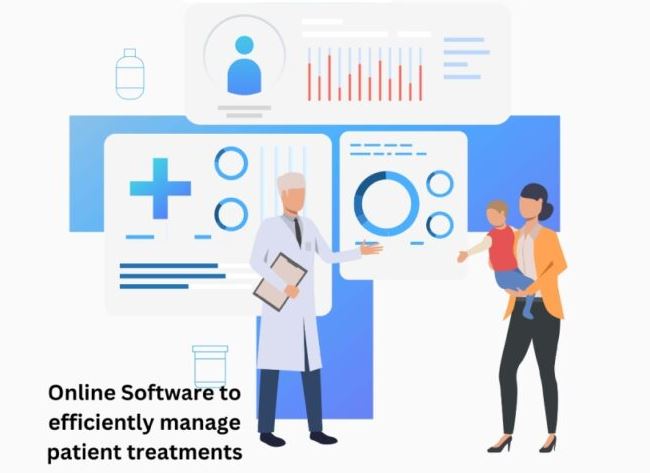In the dynamic healthcare sector, where every second is crucial, outdated methods are no longer viable. The era of paper-based records and disjointed communication is being replaced by streamlined patient management processes.

Embrace Nencer HIS Clinic Management Software, a sophisticated digital tool that enables clinics and hospitals to provide superior care. This transformative technology from Nencer Software is setting new standards in healthcare management.
Challenges of Traditional Methods
- Paper-Based Systems: These are inefficient, requiring manual document handling, which leads to time-consuming tasks like searching for patient records or scheduling appointments, thereby causing delays in both patient care and administrative duties.
- Fragmented Communication: Lack of integrated communication among doctors, nurses, and administrative staff results in miscommunication, delayed responses, and compromised patient safety.
- Appointment Chaos: Manual management of appointment schedules, patient reminders, and follow-ups can overwhelm clinic staff and frustrate patients due to long wait times and scheduling conflicts.
- Scaling Difficulties: Paper-based systems become burdensome as healthcare facilities grow, making the management of extensive paper records and administrative tasks impractical and unsustainable.
- Limited Insights: Traditional methods offer scant opportunities for data analysis, limiting insights into clinic operations, patient outcomes, and performance metrics, which are essential for informed decision-making and identifying improvement areas.
Key Features of Nencer CIS Clinic Management Software
-
Centralized Scheduling Platform
- Efficiently manages appointments, ensuring seamless coordination across departments for routine and specialized procedures.
- Offers real-time availability viewing, preventing double bookings and optimizing resource allocation.
-
Intelligent Appointment Booking
- Utilizes smart algorithms to allocate appointment slots based on doctor availability, patient preferences, and urgency, eliminating the hassle of manual slot allocation.
- Sends automated reminders to patients via SMS or email, reducing no-shows and enhancing clinic efficiency.
- Allows for easy appointment adjustments, keeping patients informed and minimizing disruptions.
-
Customizable Workflows
- Supports the creation of tailored treatment plans and customizable workflows to suit various medical specialties.
- Provides step-by-step treatment pathways, guiding clinicians through each patient's journey.
-
Real-Time Updates and Alerts
- Delivers critical alerts for urgent cases, lab results, and emergencies, enabling timely and informed decisions.
- Facilitates collaboration through secure messaging, ensuring seamless patient handoffs and continuity of care.
-
Integration with Electronic Health Records (EHR)
- Enables access to comprehensive patient data in one place, simplifying clinical decision-making.
- Facilitates secure data sharing across departments, reducing duplication and errors.
- Generates detailed reports from EHR, offering valuable insights into patient history, treatment outcomes, and more.
-
Performance Tracking through Analytics
- Monitors doctor performance, patient satisfaction, and appointment adherence, helping to identify areas for improvement.
- Assesses staff productivity and resource utilization to optimize workflows based on data-driven insights.
- Includes integrated feedback and survey tools for collecting and acting on patient feedback, continually improving the patient experience.
Benefits for Healthcare Providers
- Enhanced Efficiency: Reduces time spent on administrative tasks, allowing providers to focus more on patient care.
- Improved Patient Experience: Ensures timely appointments and personalized communication, significantly enhancing patient satisfaction.
- Optimized Resource Utilization: Efficient scheduling and management practices maximize resource use and reduce unnecessary downtime.
- Cost Savings: Cuts costs associated with manual processes and traditional record-keeping, thereby increasing revenue potential.
- Professional Development: Keeps healthcare professionals abreast of the latest advancements in technology and practice management, enhancing their skills and competitiveness in the industry.
